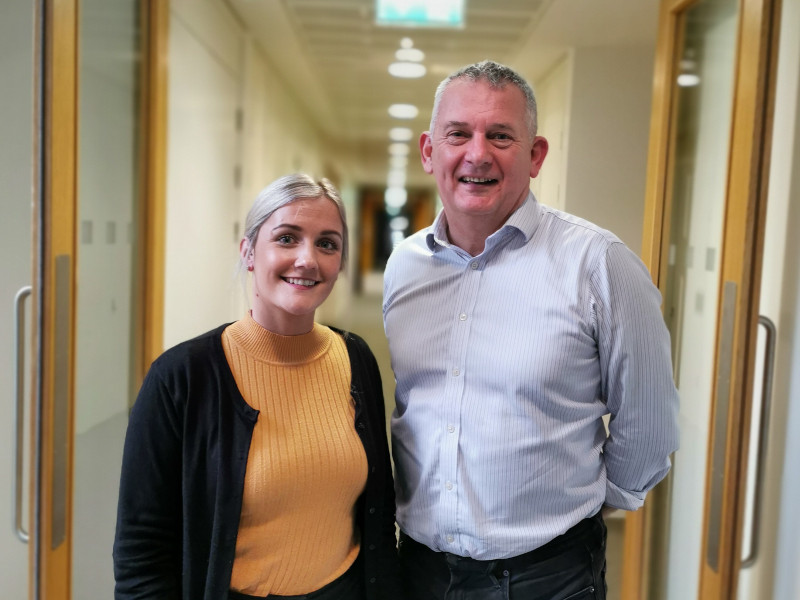UCC IGNITE director Eamon Curtin talks to ThinkBusiness about inspiring future business leaders and setting them up for success.
With a track record that includes rising stars like ApisProtect, AnaBio Technologies, TrustAp and Yooni to name a few among its alumni, the IGNITE start-up accelerator at UCC punches above its weight.
And now it is looking for a new cohort of founders it wants to make investor-ready within 12 months.
“IGNITE start-up founders develop the right attitude: to be agile in moving forward, persistent in overcoming challenges, creative in coming up with solutions and resilient in dealing with setbacks”
Last week we profiled alumni from the most recent cohort who are definitely start-ups to watch in 2021.
Applications are now open for the 15th IGNITE programme and the accelerator inviting recent graduates with business ideas to apply.
The programme is open to graduates in any discipline from any third level institution in Ireland and the application deadline is 19 February. The programme will get underway in April.
Founded in 2011 and supported by Bank of Ireland, IGNITE is a joint initiative by University College Cork, Cork City Council, Cork County Council and the Local Enterprise Offices of Cork City and County. In the past 10 years IGNITE has supported multiple cohorts with hundreds of individuals with start-up ideas.
Sparking genius

Pictured: Michelle Dorgan, programme manager, UCC Ignite, with Eamon Curtin, director, UCC Ignite
We asked director Eamon Curtin about the skills and attitudes the programme imbues in budding entrepreneurs.
What are the most important skills that IGNITE businesses learn?
IGNITE start-up founders develop the essential marketing, sales and financial skills, the so-called hard skills that are needed to start and grow a business. But the most important skills they learn, the ones that can be the difference between success and failure, are the soft skills: the ability to engage customers; to start, develop and harness a business network; and to present and pitch to customers and investors with confidence.
And just as important is that IGNITE start-up founders develop the right attitude: to be agile in moving forward, persistent in overcoming challenges, creative in coming up with solutions and resilient in dealing with setbacks.
What has the pandemic changed most about the Ignite programme and the skills you teach?
The basic skills haven’t changed. IGNITE start-up founders have just become more adept at using online technologies to engage with customers, to build networks and to pitch and present their ideas. If anything, the pandemic has underlined the importance of agility, persistence, creativity and resilience.
The business environment will be forever changed by the pandemic, what kind of an environment will you be preparing young firms?
I don’t think the pandemic has taken the business environment in a new direction as much as accelerated the pace of change. If anything, characteristics of the start-up founder such as agility, persistence, creativity and resilience, are the best preparation for post pandemic business environment.
Recent IVCA figures show a dearth in funding for early stage businesses, do you think this will hold back young start-ups?
Certainly. The recent graduates we work with are lean, they can get a start-up off the ground with relatively little funding, but they do need the funding. Just five thousand euro can be the difference between a start-up getting off the ground and stuttering to a stop.
Are entrepreneurs born or can they be developed?
I don’t think it’s one or the other. Starting a business, like any other pursuit, comes down to having the right combination of knowledge, skills and attitude. For the most part, knowledge can be learned, skills can be developed, and attitude or approach can be adapted over time. So most people can do it. But most won’t.
By John Kennedy (john.kennedy3@boi.com)
Published: 17 February 2021
-
Bank of Ireland is welcoming new customers every day – funding investments, working capital and expansions across multiple sectors. To learn more, click here
-
Listen to the ThinkBusiness Podcast for business insights and inspiration. All episodes are here. You can also listen to the Podcast on:
-
Spotify
-
SoundCloud
-
Apple






